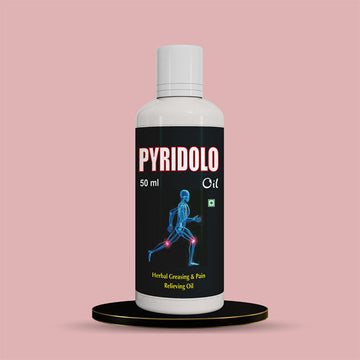Muscle pain, often referred to as myalgia, is a common complaint that affects people of all ages and walks of life. Whether it's a minor strain from overexertion or a more serious condition like fibromyalgia, muscle pain can significantly impact daily activities and overall quality of life. Understanding the various causes of muscle pain is crucial for effective prevention, diagnosis, and treatment.
In this blog, we'll delve into the nature of muscle pain, its symptoms, underlying causes, and potential treatments. By shedding light on these aspects, we aim to empower readers with the knowledge needed to better manage and alleviate muscle pain.
What Is Muscle Pain?
Muscle pain is discomfort or aching that arises from the muscles or the surrounding connective tissues. It can be acute, lasting just a few days, or chronic, persisting for weeks or even longer. The pain can be localized, affecting just one area, or widespread, impacting multiple muscle groups. Causes can range from physical exertion and injuries to systemic conditions and infections.
Muscle pain often manifests as tenderness, soreness, or a sharp burning sensation. In some cases, it can be so severe that it restricts movement and hampers daily activities. Understanding the nature of muscle pain and its origins can help in tailoring appropriate treatment strategies for relief and rehabilitation.
Also Read: Everything You Need to Know About Back Pain Causes, Symptoms, and Treatments
Muscle Pain Symptoms
Soreness
Soreness is a mild to moderate pain that typically arises after exercise or physical activity. It indicates small muscle tears and inflammation during muscle recovery and strengthening.
Stiffness
Muscle stiffness refers to a decrease in muscle flexibility, often causing difficulty in movement and discomfort. It typically occurs after prolonged periods of immobility or waking up in the morning.
Cramping
Cramping involves sudden, involuntary muscle contractions that can be extremely painful. Common causes of muscle cramps include dehydration, electrolyte imbalances, and prolonged exercise.
Weakness
Muscle weakness is a reduction in muscle strength that can affect one's ability to perform routine tasks. It often accompanies other symptoms of muscle pain and indicates underlying issues like injury or illness.
Swelling
Swelling is the enlargement or puffiness of muscles, typically due to inflammation or fluid buildup. It can cause discomfort and restrict movement.
Also Read: 6 Effective Strategies on How to Strengthen Your Joints and Protect Them
Why Muscle Pain Occurs
Overuse
Overuse of muscles during activities like exercise or manual labor can lead to strains, tears, and subsequent muscle pain. This type of pain is often acute but can become chronic if the overuse persists.
Injury
Direct trauma to the muscle from accidents, falls, or sports injuries can cause immediate and severe pain. Muscle injuries often involve tears, sprains, or even complete ruptures of muscle fibers.
Poor Posture
Maintaining poor posture, especially for extended periods, can strain muscles and lead to pain. This is particularly common in individuals who sit for long hours without adequate back support.
Infections
Certain infections, like the flu or Lyme disease, can cause widespread muscle aches. The body's immune response to these infections typically results in inflammation and muscle discomfort.
Chronic Conditions
Chronic conditions such as fibromyalgia and arthritis can lead to persistent and widespread muscle pain. These conditions often require long-term management strategies to alleviate symptoms.
Dehydration
Lack of adequate hydration impairs muscle function and can cause cramping and pain. Proper fluid intake is essential to maintain muscle health and prevent pain.
Meaning of Muscle Stiffness
Muscle stiffness refers to the sensation of tightness and reduced flexibility in muscles, often resulting in difficulty moving. It occurs when muscles fail to relax completely after contraction, leading to a constant state of partial contraction. Causes of muscle stiffness include overexertion, poor posture, lack of movement, or certain medical conditions. Managing stiffness involves regular stretching, hydration, and sometimes physical therapy.
Also Read: Nature’s Touch: Effective Home Remedies For Arthritis Relief
Complications of Muscle Pain
Mobility Limitation: Chronic muscle pain can severely restrict movement, impacting daily activities and overall quality of life.
Sleep Disturbances: Persistent pain can lead to difficulty sleeping, resulting in fatigue and lowering the body's ability to heal.
Mental Health Issues: Ongoing discomfort and pain can lead to depression, anxiety, and a decreased sense of well-being.
Dependence on Pain Medications: Long-term use of pain relievers can result in dependency and potential side effects from the medications.
Reduced Physical Activity: Avoiding activities that exacerbate muscle pain may lead to physical deconditioning and further weakening of muscles.
Treatment For Muscle Pain
Rest
Allowing the muscle to rest and avoiding activities that cause strain can help in healing minor strains and overuse injuries.
Ice and Heat Therapy
Applying ice can reduce inflammation and numb discomfort, while heat therapy can relax and soothe tense muscles.
Physical Therapy
Under the guidance of a professional, physical therapy can help in strengthening and rehabilitating muscles to prevent future pain.
Medications
Over-the-counter pain relievers like ibuprofen or acetaminophen can help in managing mild to moderate muscle pain. In severe cases, prescription medications may be necessary.
Hydration
Ensuring adequate water intake helps maintain muscle function and prevents cramping and stiffness associated with dehydration.
Stretching and Exercise
Regular stretching and exercise can improve muscle flexibility and strength, thereby reducing the likelihood of pain.
Conclusion
Understanding the causes, symptoms, and treatments of muscle pain can significantly enhance your ability to manage and alleviate discomfort. From minor overuse to chronic conditions, recognizing the underlying factors and addressing them effectively is vital for maintaining muscle health.
Addressing muscle pain promptly can prevent complications and improve your quality of life. Whether through rest, physical therapy, or medication, there are numerous strategies to mitigate pain and foster recovery. Empower yourself with knowledge, listen to your body, and take proactive steps in managing muscle discomfort. By doing so, you not only alleviate pain but also pave the way for a healthier, more active lifestyle.












